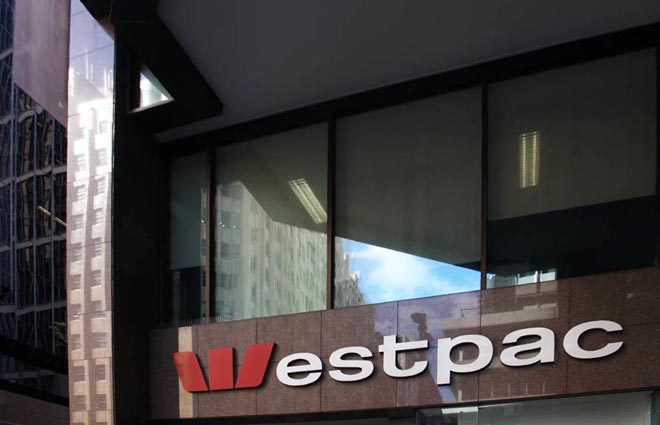From ABC News.
The Government and major banks were staunchly against a royal commission until it became all but inevitable that an inquiry would happen with or without their imprimatur.
 That has led many to question whether the terms of reference have been designed to reduce the scope of the commission in a way that limits the amount of wrongdoing that might be uncovered.
That has led many to question whether the terms of reference have been designed to reduce the scope of the commission in a way that limits the amount of wrongdoing that might be uncovered.
“It is carefully crafted to avoid a lot of the potential bear traps,” said banking analyst Martin North from Digital Finance Analytics.
“It’s probably the one you have to have, I’m not sure it’s really going to add much to the real debate and I’m not sure the outcomes will be really significant.”
CLSA banking analyst Brian Johnson concurs the terms of reference are weaker than what Labor, the Greens and some dissident Nationals had in mind.
But he also noted the extensive and compulsive investigative powers of royal commissions tend to mean they turn up surprising findings — the “unknown unknowns” as former US defence secretary Donald Rumsfeld famously put it.
“If it doesn’t actually turn up anything that we don’t know already then it is really a waste of time,” Mr Johnson said.
“This does provide a mechanism for aggrieved parties to basically purge themselves, so that’s where the risk basically lies [for the banks].”
What skeletons remain in the cupboard?
The Government’s main argument against a royal commission is that it has already held a range of inquiries and undertaken a number of reforms to improve financial sector regulation and accountability.
Martin North agrees a lot of progress has been made.
“Over the last 18 months or so, there have been a whole series of improvements in the regulatory framework in and around banks,” he said.
“A lot of the things that should have been done have been done already.”
Mr North cited the Productivity Commission review of so-called vertical integration (where banks cross-sell a wide range of products and services to their customers), the ACCC’s investigation into bank price setting and the Banking Executive Accountability Regime as examples.
However, Mr North said the biggest elephant in the room remains largely ignored.
“The critical question for me is about lending, and about lending standards,” he said.
“I have a view that we are at a very early stage of understanding just how far from where we should have been have the lending standards been … that is the real black hole at the moment.”
Mr North said there may be a ticking time bomb of bad loans that could turn into rising defaults over the next three to five years.
“If you look at the lending standards today and you compare them to two or three years ago, there are many people holding mortgages today who would not now have got those mortgages,” he said.
“But I also believe that even today, the lending standards are still too loose and there are households today who are able to get mortgages and committing to mortgages that they shouldn’t be getting.”
Mr North said there was also a lot more to be discovered in the areas of financial planning and mortgage broking.
“I also think that we’ve still got some questions around the conflicts of interest, for example, from mortgage brokers and financial advisers and how they back-end into the overall financial services sector,” he said.
“Those are the two things that I think are the critical issues but I don’t think either of them will get touched very hard in this review.”
Mr Johnson said another key issue that may not be examined in the royal commission is the economic fallout of having such large, super-profitable major banks.
“The 10-year bond rate is something like 2.6 per cent and we’ve got banks doing an ROE [return on equity] of about 15 per cent, which is amongst the highest in the world,” he said.
“That high level of profitability, perhaps that is a tax on the rest of the economy.”
Time more limited than terms of reference
While the terms of reference give relatively broad scope for Kenneth Hayne to take a wide looks across the financial sector, he has only been given a year to do so.
This is slightly less than the Northern Territory royal commission investigating youth detention.
It is almost a full year less than the Trade Union Royal Commission, which was extended from nine months to nearly two years at the request of commissioner Dyson Heydon who found there was insufficient time to complete his inquiry into half a dozen trade unions.
This inquiry is intended to look at hundreds of financial companies, many of which are worth well over $1 billion and each sell hundreds of individual products.
Given the number of victims of the financial scandals the public have been made aware of, the royal commission looking at institutional responses to child sexual abuse may provide a better guide of how much time is needed for a genuinely thorough inquiry.
It was originally intended to take two years, however it was extended to four years due to the sheer volume of victims’ stories that needed to be told.
Will the royal commission raise mortgage rates?
As for bank claims the bad publicity and possibility of new scandals arising from the royal commission would push up overseas funding costs and therefore mortgage interest rates, Mr Johnson is sceptical.
“The cost of three-year and five-year money is back down at the low points of the cycle,” he said.
“It certainly would be more driven by what we see happening in credit markets generally than this idea that suddenly investors would desert the Australian banks.
“I just think that’s over-hyping it and it’s a somewhat convenient argument.”
Mr Johnson said where Australians choose to park their savings is a much more important factor for lending interest rates than whether international investors are investing.
“The funding costs for the Australian banks are far more sensitive to deposit pricing than they actually are to wholesale funding,” he added.
Ironic in light of the latest scandal, exposed by Ben Butler in The Australian, where the major banks rolled term-deposit customers over into much lower interest rate products after their initial deposit matured without adequate warning that this would happen.




